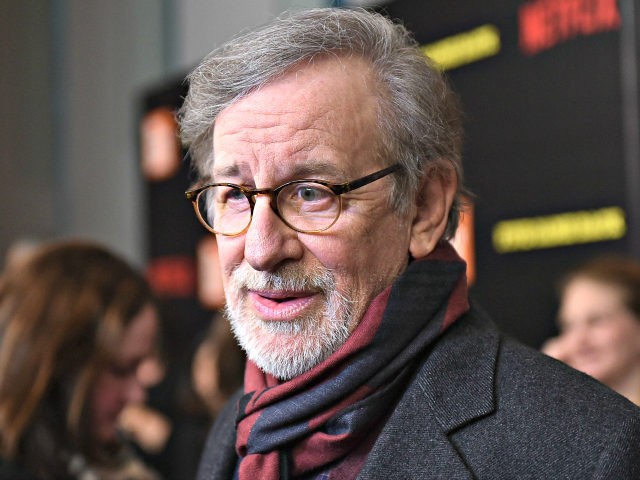Director Steven Spielberg and political activist Noam Chomsky say AI is soulless and terrifying. An article co-authored by Chomsky claims that “ChatGPT exhibits something like the banality of evil: plagiarism and apathy and obviation.”
“It’s got me very nervous, because you’re basically taking something you created and you made — which is the computer — and giving the computer autonomy over your point of view and your self as a human person,” Spielberg told late-night show host Stephen Colbert in a recent interview.
Watch Below:
“I love anything that is created, not by a computer, but by a human person,” Spielberg added.
After Colbert asked Spielberg if he thinks “those making artificial intelligence are so preoccupied with whether they could, they’re not stopping to think whether they should?” the director said, “I’m worried about that.

scholar and activist Noam Chomsky attends a conference at the Islamic University in Gaza City (AP photo/Hatem Moussa)
“People who do that for a living don’t really, I don’t think they have the — and I don’t think it’s about morality — it’s just about climbing a mountain and getting to the top, and then looking back down to ask the question: Is this going to better serve humanity?” he said.
“I think the soul is unimaginable, and is ineffable,” Spielberg said. “And it cannot be created by any algorithm, it is just something that exists in all of us. And to lose that because books, and movies, and music are being written by machines we created? That terrifies me.”
Spielberg added that AI will “be the Twilight Zone to serve man. It’ll turn out to be a cookbook, and we’re on the menu.”
Additionally, Chomsky recently penned an op-ed for the New York Times (along with University of Cambridge professor Ian Roberts and philosopher Jeffrey Watumull), in which they argued that tools like the popular AI-powered ChatGPT chatbot have “sacrificed creativity for a kind of amorality.”
“ChatGPT exhibits something like the banality of evil: plagiarism and apathy and obviation,” they wrote.
“It summarizes the standard arguments in the literature by a kind of super-autocomplete, refuses to take a stand on anything, pleads not merely ignorance but lack of intelligence and ultimately offers a ‘just following orders’ defense, shifting responsibility to its creators,” they added.
The trio went on to say that “Given the amorality, faux science and linguistic incompetence of these systems, we can only laugh or cry at their popularity.”
These comments come after artists, celebrities, and the world of academia have expressed frustration and concerns over AI tools generating a mockery of original work by ripping off real, human artists.
Last month, Hollywood star Keanu Reeves said deepfake digital face edits are “scary,” adding that his film contracts ban digital edits to his acting.
But while actors are able to ban deepfakes in their contracts, there appears to be nothing stopping people from swapping them, or anyone, into readily available Chinese apps, as earlier this week, hundreds of sexual deepfake app advertisements featuring actresses Emma Watson and Scarlett Johansson ran on Facebook and Instagram — seemingly without their consent.
Meanwhile, students in an elite academic program at a Florida high school are being accused of cheating by using ChatGPT to write their essays. In January, a survey suggested that 17 percent of students at Stanford University have already used ChatGPT on their final exams.
ChatGPT is an AI-powered chatbot developed by the San Francisco-based artificial intelligence company OpenAI. It uses deep learning techniques to analyze and understand the context of a given conversation or question, and can generate responses that seem real and human-like.
You can follow Alana Mastrangelo on Facebook and Twitter at @ARmastrangelo, and on Instagram.

COMMENTS
Please let us know if you're having issues with commenting.